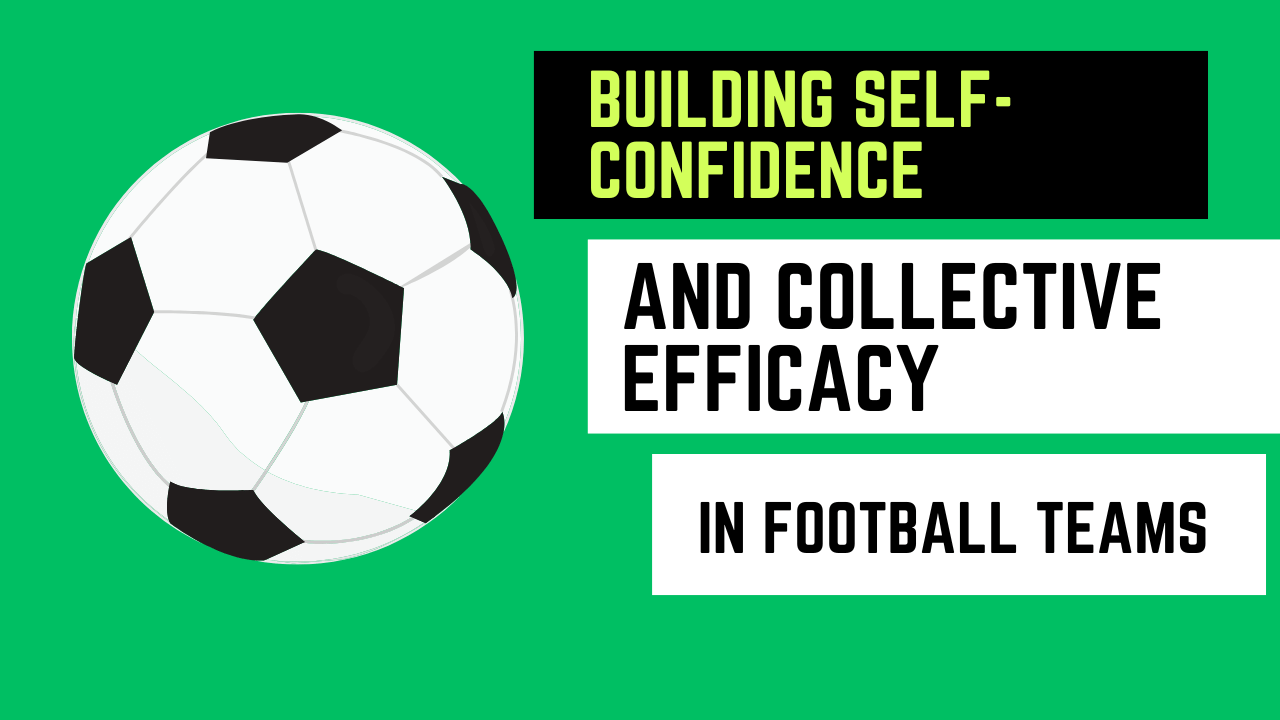In the world of football, talent and strategy are crucial, but the mental aspect of the game often determines the line between victory and defeat. Two key psychological elements – self-confidence and collective efficacy play pivotal roles in the success of football teams. Building these qualities not only boosts individual performance but also strengthens the team as a whole, creating an unstoppable force on the field.
Here’s how teams can foster these vital traits.
Understanding Self-Confidence and Collective Efficacy
Self-confidence in football refers to a player’s belief in their own abilities to perform tasks and overcome challenges on the field. It’s about trusting one’s skills, decisions, and physical condition.
Collective efficacy, on the other hand, is the shared belief in a team’s ability to work together and achieve common goals. It’s the confidence that stems from a collective spirit, where each member believes in the team’s capacity to succeed.
Strategies to Build Self-Confidence
- Positive Reinforcement: Coaches and teammates should acknowledge and celebrate individual achievements, no matter how small. Positive feedback encourages players to keep pushing their limits.
- Skill Development: Regular, focused training sessions help players improve their technical, physical, and tactical abilities, directly boosting their self-confidence.
- Mental Preparation: Visualization techniques and mental rehearsal of successful plays can enhance a player’s belief in their abilities. Encouraging players to visualize their success can prepare them mentally for the game.
- Set Realistic Goals: Players should set achievable goals for improvement. Reaching these goals can significantly boost confidence as they provide tangible evidence of progress.
Cultivating Collective Efficacy
- Team-Building Activities: Off-the-field activities that promote unity and understanding can enhance the sense of belonging and trust among team members, leading to stronger collective efficacy.
- Effective Communication: Open lines of communication help in resolving conflicts, expressing expectations, and sharing strategies, thereby fostering a cohesive team environment.
- Leadership Roles: Encouraging players to take on leadership roles within the team can empower them and foster a sense of responsibility towards the team’s success.
- Celebrate Team Success: Recognizing the team’s achievements, both in practice and in games, reinforces the belief in the team’s abilities and strengthens the collective spirit.
The Role of Coaches and Team Leaders
Coaches and team leaders play a crucial role in building both self-confidence and collective efficacy. Through consistent encouragement, strategic feedback, and creating an inclusive team environment, they can set the foundation for both personal and team growth. Leadership that emphasizes resilience, adaptability, and continuous improvement can inspire confidence and efficacy among team members.
Conclusion
Building self-confidence and collective efficacy in football teams requires a focused, intentional approach that addresses both individual and collective needs. By combining positive reinforcement, skill development, effective communication, and team-building activities, teams can create a supportive environment that nurtures these psychological strengths.
When players believe in themselves and their teammates, they are better equipped to handle the pressures of the game, leading to improved performance, teamwork, and, ultimately, success on the field.

